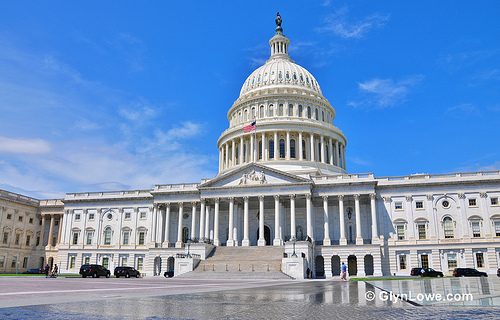Cap Needs to Be Reinstated on TSA Fees
Earlier this year, the Murray-Ryan budget deal boosted the Transportation Security Administration (TSA) security fee to a maximum of $5.60 one-way, but the TSA interpreted that to mean that the $10 limit that had previously been in place was eliminated. The bill’s authors — the chair and ranking member of the Homeland Security Committee and its transportation panel — said that was never their intent. The lack of a cap on this fee could result in charges of $20 or more for complex routes.
Rep. Richard Hudson (R-NC), the chair of the House Homeland Security Transportation Subcommittee, introduced a bill reinstating the cap on passenger security taxes. House Homeland Security Committee Chair Mike McCaul (R-TX), full committee ranking member Bennie Thompson (D-MS) and subcommittee ranking member Cedric Richmond (D-LA) co-sponsored the bill, making it a bipartisan effort during extremely partisan times.
Yesterday, the House passed the bill to block the TSA from lifting the cap on the security fee. The measure was approved 423-0 after being debated on the floor the previous night. It was considered under suspension of the rules, a procedure for largely noncontroversial legislation that requires a two-thirds vote for passage.
This is great news! In June the attendees of GBTA’s Legislative Symposium stormed Capitol Hill to raise the concern that TSA was going to remove the cap on the Transportation Security Fee. TSA had just announced their plan and the attendees hit the meetings with their Representatives and stated GBTA’s concerns with allowing this to happen. It is clear that your voice makes a difference!
GBTA now asks that the Senate take quick action to cap this fee as continued tax and fee increases are not the answer. More efficient, less costly, risk-based screening programs and tighter fiscal controls are the answer.
Road warriors strengthen the economy, create jobs and drive economic security. Travel should be promoted. GBTA is very concerned taxes and fees are approaching the tipping point that will ultimately push business travelers to stay at home.
